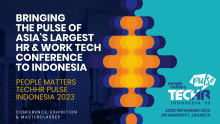5 HR trends that will rule the roost in 2021

COVID-19 has affected every aspect of our lives, at home and at work. The transformation it has enabled has impacted the way employees are working and interacting – with colleagues and the wider ecosystem. This behavioural change will be the focus for HR leaders as they begin to plan beyond the pandemic in the new normal.
COVID has challenged HR personnel to adapt HR strategies to the new situation. The key task in this unprecedented situation was to maintain business continuity, especially during the initial stringent lockdown across the country. So, what will be the challenges for HR in 2021? Let’s look at five trends that could dominate human resource sectors in the coming year.
Employee well-being will be critical
As executive leaders, HR personnel will be called upon to help employees to proactively deal with the present situation. This is alongside the need to commit to long-term policies and solutions to help employees become healthier – both physically and mentally, as well as become more resilient.
The current phase, and the post-COVID period, calls for an unprecedented rebuild process. It will be important how HR dispels any fears among jittery employees on working physically closely with others, as well as promote both their physical and mental well-being to ensure a successful revamp of business operations.
Demand for new and emerging skills will rise
As digital transformation evolves, it’s imperative for employees to stay ahead of the learning curve. HR will be at the forefront here – they will have to curate precise developmental journeys for employees to keep learning. There will be continued emphasis on new-age technology skills like artificial intelligence, machine learning, RPA and edge computing.
The future of work will be led by employees’ digital capabilities to navigate and maintain seamless contact with an organisation's extended ecosystem – clients, partners and government. This task too will fall upon HR. As virtual learning dominates, HR will begin to think up immersive learning platforms to make learning and skilling accessible to employees virtually.
Focus on employee experience will increase
In the new normal, the foremost task will be to further build a culture of inclusion and harmony. As employees transition to newer roles, they will deal with new ways of collaboration and processes. A key HR goal will be to build integrated cultures that redefine employee experience – especially in a remote working scenario – to build trust and emotional intelligence.
As remote working may be here for long periods, even permanently in some organisations, there will be greater emphasis on the trust element. Collaboration will become more imperative as physical engagement reduces. Thereby, trust will become a crucial for engaging and employees will have to work towards building the trust factor.
New ways to onboard talent will emerge
The pandemic has redefined the way leaders and employees think about their jobs. The role for HR leaders moving forward will be to build a strong, stable remote work culture that encapsulates every facet of the hiring cycle. This will be enabled by broader access to talent pools, while employees too will have more options for choosing their next or first professional jobs.
Remote working has long-term impact on business. HR leaders will be called upon to further refine this strategy for growing both talent and business. This will include talent onboarding, online assessments, and aligning an employee’s role and position to the overarching organisational goals. This will be the crux for business growth and in winning the talent war in the new normal.
Automation and data analytics will play a big role
HR as a function will continue to build on automation across the employee life cycle. Over the years, HR has become more agile in using data to analyse employee experience and to make better decisions. Going forward, we will see a high-level focus on managing and organising such data, and therefore high import to data governance.
As organisations continue to function remotely, and with new goals, there is a need to help employees in day-to-day functioning. HR leaders will have to respond to these disruptions in an agile manner by utilising automation to the fullest to balance needs of the organisation and of employees to build a resilient and sustainable future.
2021 will be a make-or-break year for HR
Today, HR is at the crossroad, and the forefront, of ensuring business continuity while maintaining the smooth functioning of operations, as well as being closely involved in driving business along with their respective management teams. The role of HR today has truly become all-encompassing.
Businesses have realised their success depends on the collective well-being of their employees; therefore, the focus on people well-being will continue or rise further. With its task across functions well and truly cut out, 2021 could well be the year of the HR!
















